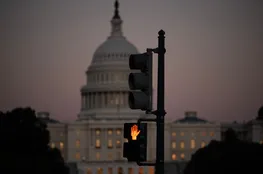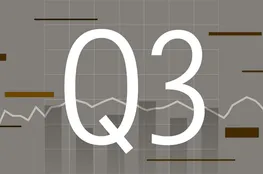Tesla generated a staggering $2.76 billion in revenue from ZEV credits in 2024 within the United States, a figure significantly impacted by the recently passed legislation spearheaded by President Donald Trump. This revenue stream, a cornerstone of Tesla’s business model, has now been jeopardized by the ‘Big, Beautiful Bill,’ which fundamentally alters the landscape of electric vehicle incentives. The bill’s core provision eliminates the $7,500 Federal EV credit for new electric vehicle purchases and the $4,000 credit for used EVs. Furthermore, it dismantles hefty fines associated with Corporate Average Fuel Economy Norms (CAFE), regulations designed to measure and control vehicle fuel efficiency. Tesla’s success hinges on its exclusive production of all-electric vehicles, allowing it to accumulate regulatory credits known as ZEV (Zero Emission Vehicle) credits. These credits are earned by automakers who avoid generating emissions through the manufacture of EVs or hydrogen fuel cells. Crucially, Tesla then sells these credits to other automotive manufacturers struggling to meet CAFE standards, effectively shielding them from substantial government fines. This transaction-based model has proven exceptionally lucrative, driving the aforementioned $2.76 billion in revenue. The implications of this legislation extend beyond simple revenue reduction; it fundamentally alters the dynamics of the EV market. The removal of the $7,500 Federal credit directly impacts consumer purchasing decisions, potentially slowing the adoption of electric vehicles. Moreover, the dismantling of CAFE norms, which incentivized Tesla to produce EVs, creates uncertainty about the future demand for ZEV credits. The Congressional Review Act, utilized to revoke Environmental Protection Agency (EPA) waivers, plays a critical role in this shift. These waivers had previously allowed California and the 17+ states aligning with its standards to enforce stricter emissions rules, including ZEV mandates. Without these waivers, states can no longer compel automakers to meet ZEV sales targets or purchase ZEV credits, rendering the sale of these credits largely irrelevant. This creates a significant vulnerability for Tesla, a company entirely reliant on this revenue stream.
Tesla generated a staggering $2.76 billion in revenue from ZEV credits in 2024 within the United States, a figure significantly impacted by the recently passed legislation spearheaded by President Donald Trump. This revenue stream, a cornerstone of Tesla’s business model, has now been jeopardized by the ‘Big, Beautiful Bill,’ which fundamentally alters the landscape of electric vehicle incentives. The bill’s core provision eliminates the $7,500 Federal EV credit for new electric vehicle purchases and the $4,000 credit for used EVs. Furthermore, it dismantles hefty fines associated with Corporate Average Fuel Economy Norms (CAFE), regulations designed to measure and control vehicle fuel efficiency. Tesla’s success hinges on its exclusive production of all-electric vehicles, allowing it to accumulate regulatory credits known as ZEV (Zero Emission Vehicle) credits. These credits are earned by automakers who avoid generating emissions through the manufacture of EVs or hydrogen fuel cells. Crucially, Tesla then sells these credits to other automotive manufacturers struggling to meet CAFE standards, effectively shielding them from substantial government fines. This transaction-based model has proven exceptionally lucrative, driving the aforementioned $2.76 billion in revenue. The implications of this legislation extend beyond simple revenue reduction; it fundamentally alters the dynamics of the EV market. The removal of the $7,500 Federal credit directly impacts consumer purchasing decisions, potentially slowing the adoption of electric vehicles. Moreover, the dismantling of CAFE norms, which incentivized Tesla to produce EVs, creates uncertainty about the future demand for ZEV credits. The Congressional Review Act, utilized to revoke Environmental Protection Agency (EPA) waivers, plays a critical role in this shift. These waivers had previously allowed California and the 17+ states aligning with its standards to enforce stricter emissions rules, including ZEV mandates. Without these waivers, states can no longer compel automakers to meet ZEV sales targets or purchase ZEV credits, rendering the sale of these credits largely irrelevant. This creates a significant vulnerability for Tesla, a company entirely reliant on this revenue stream.
Tesla generated a staggering $2.76 billion in revenue from ZEV credits in 2024 within the United States, a figure significantly impacted by the recently passed legislation spearheaded by President Donald Trump. This revenue stream, a cornerstone of Tesla’s business model, has now been jeopardized by the ‘Big, Beautiful Bill,’ which fundamentally alters the landscape of electric vehicle incentives. The bill’s core provision eliminates the $7,500 Federal EV credit for new electric vehicle purchases and the $4,000 credit for used EVs. Furthermore, it dismantles hefty fines associated with Corporate Average Fuel Economy Norms (CAFE), regulations designed to measure and control vehicle fuel efficiency. Tesla’s success hinges on its exclusive production of all-electric vehicles, allowing it to accumulate regulatory credits known as ZEV (Zero Emission Vehicle) credits. These credits are earned by automakers who avoid generating emissions through the manufacture of EVs or hydrogen fuel cells. Crucially, Tesla then sells these credits to other automotive manufacturers struggling to meet CAFE standards, effectively shielding them from substantial government fines. This transaction-based model has proven exceptionally lucrative, driving the aforementioned $2.76 billion in revenue. The implications of this legislation extend beyond simple revenue reduction; it fundamentally alters the dynamics of the EV market. The removal of the $7,500 Federal credit directly impacts consumer purchasing decisions, potentially slowing the adoption of electric vehicles. Moreover, the dismantling of CAFE norms, which incentivized Tesla to produce EVs, creates uncertainty about the future demand for ZEV credits. The Congressional Review Act, utilized to revoke Environmental Protection Agency (EPA) waivers, plays a critical role in this shift. These waivers had previously allowed California and the 17+ states aligning with its standards to enforce stricter emissions rules, including ZEV mandates. Without these waivers, states can no longer compel automakers to meet ZEV sales targets or purchase ZEV credits, rendering the sale of these credits largely irrelevant. This creates a significant vulnerability for Tesla, a company entirely reliant on this revenue stream.
Tesla generated a staggering $2.76 billion in revenue from ZEV credits in 2024 within the United States, a figure significantly impacted by the recently passed legislation spearheaded by President Donald Trump. This revenue stream, a cornerstone of Tesla’s business model, has now been jeopardized by the ‘Big, Beautiful Bill,’ which fundamentally alters the landscape of electric vehicle incentives. The bill’s core provision eliminates the $7,500 Federal EV credit for new electric vehicle purchases and the $4,000 credit for used EVs. Furthermore, it dismantles hefty fines associated with Corporate Average Fuel Economy Norms (CAFE), regulations designed to measure and control vehicle fuel efficiency. Tesla’s success hinges on its exclusive production of all-electric vehicles, allowing it to accumulate regulatory credits known as ZEV (Zero Emission Vehicle) credits. These credits are earned by automakers who avoid generating emissions through the manufacture of EVs or hydrogen fuel cells. Crucially, Tesla then sells these credits to other automotive manufacturers struggling to meet CAFE standards, effectively shielding them from substantial government fines. This transaction-based model has proven exceptionally lucrative, driving the aforementioned $2.76 billion in revenue. The implications of this legislation extend beyond simple revenue reduction; it fundamentally alters the dynamics of the EV market. The removal of the $7,500 Federal credit directly impacts consumer purchasing decisions, potentially slowing the adoption of electric vehicles. Moreover, the dismantling of CAFE norms, which incentivized Tesla to produce EVs, creates uncertainty about the future demand for ZEV credits. The Congressional Review Act, utilized to revoke Environmental Protection Agency (EPA) waivers, plays a critical role in this shift. These waivers had previously allowed California and the 17+ states aligning with its standards to enforce stricter emissions rules, including ZEV mandates. Without these waivers, states can no longer compel automakers to meet ZEV sales targets or purchase ZEV credits, rendering the sale of these credits largely irrelevant. This creates a significant vulnerability for Tesla, a company entirely reliant on this revenue stream.
Tesla generated a staggering $2.76 billion in revenue from ZEV credits in 2024 within the United States, a figure significantly impacted by the recently passed legislation spearheaded by President Donald Trump. This revenue stream, a cornerstone of Tesla’s business model, has now been jeopardized by the ‘Big, Beautiful Bill,’ which fundamentally alters the landscape of electric vehicle incentives. The bill’s core provision eliminates the $7,500 Federal EV credit for new electric vehicle purchases and the $4,000 credit for used EVs. Furthermore, it dismantles hefty fines associated with Corporate Average Fuel Economy Norms (CAFE), regulations designed to measure and control vehicle fuel efficiency. Tesla’s success hinges on its exclusive production of all-electric vehicles, allowing it to accumulate regulatory credits known as ZEV (Zero Emission Vehicle) credits. These credits are earned by automakers who avoid generating emissions through the manufacture of EVs or hydrogen fuel cells. Crucially, Tesla then sells these credits to other automotive manufacturers struggling to meet CAFE standards, effectively shielding them from substantial government fines. This transaction-based model has proven exceptionally lucrative, driving the aforementioned $2.76 billion in revenue. The implications of this legislation extend beyond simple revenue reduction; it fundamentally alters the dynamics of the EV market. The removal of the $7,500 Federal credit directly impacts consumer purchasing decisions, potentially slowing the adoption of electric vehicles. Moreover, the dismantling of CAFE norms, which incentivized Tesla to produce EVs, creates uncertainty about the future demand for ZEV credits. The Congressional Review Act, utilized to revoke Environmental Protection Agency (EPA) waivers, plays a critical role in this shift. These waivers had previously allowed California and the 17+ states aligning with its standards to enforce stricter emissions rules, including ZEV mandates. Without these waivers, states can no longer compel automakers to meet ZEV sales targets or purchase ZEV credits, rendering the sale of these credits largely irrelevant. This creates a significant vulnerability for Tesla, a company entirely reliant on this revenue stream.
























